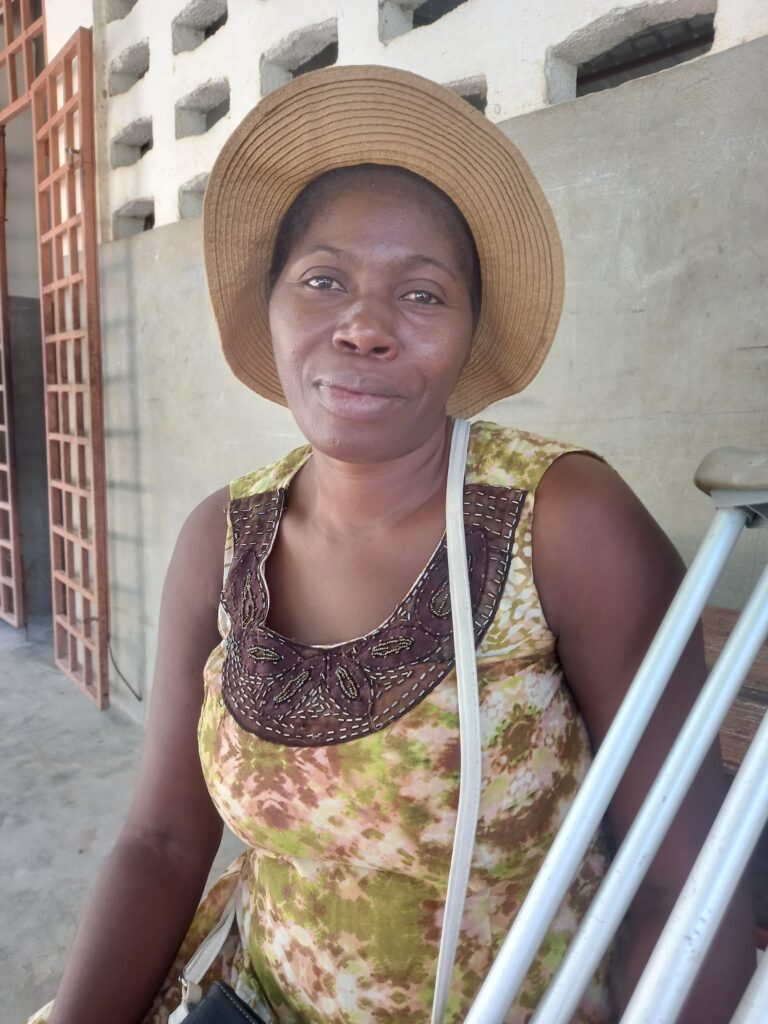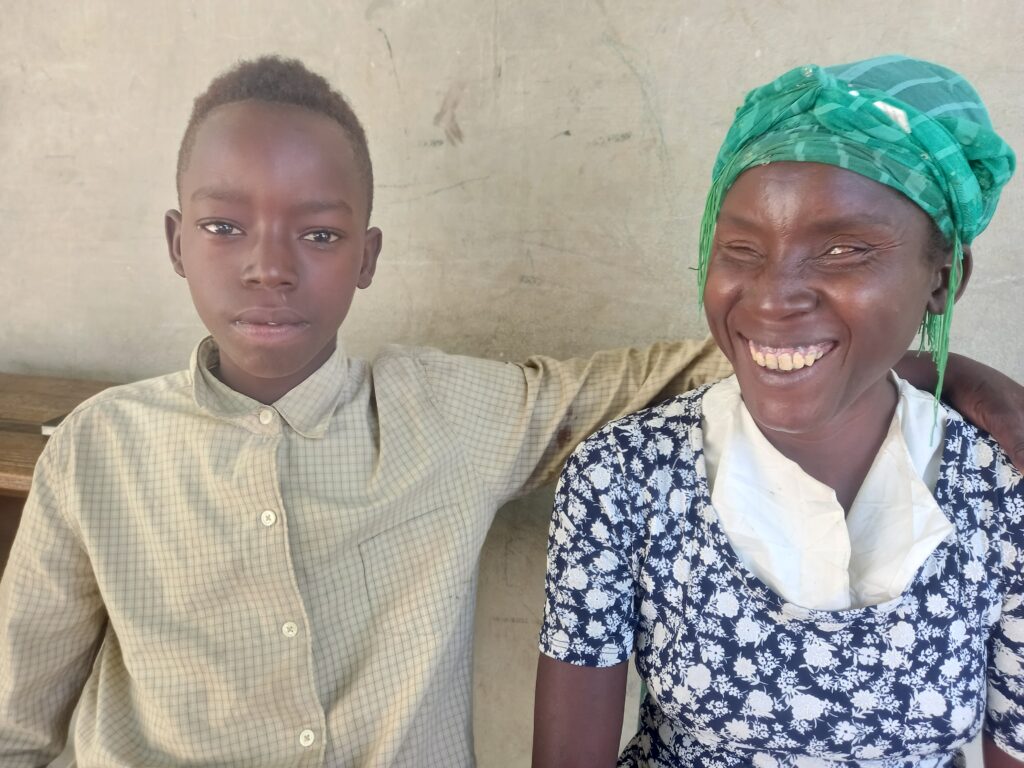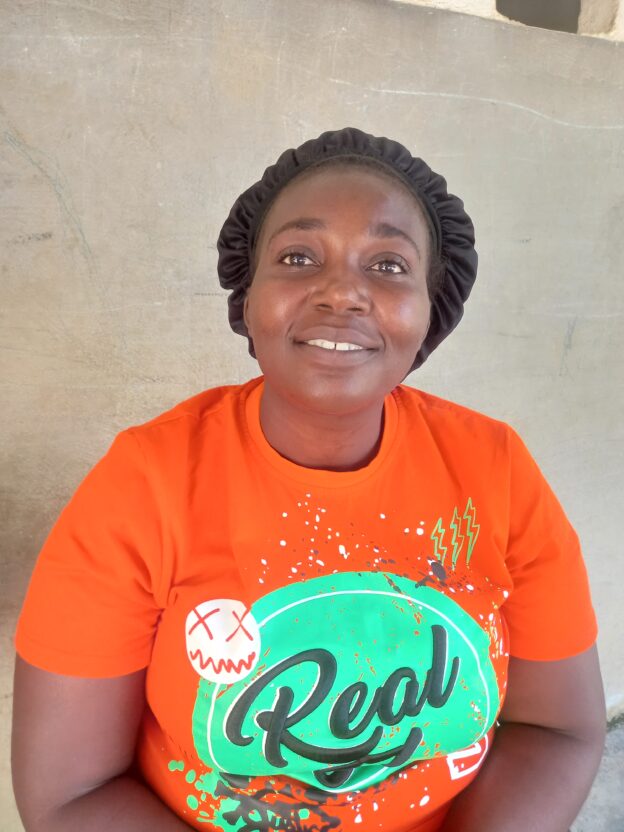Rosemène Elcin is a mother of seven. She lives in Twa Wòch, a neighborhood in Pouli, a broad area of southeastern Laskawobas. The father of her first four children passed away, and she now lives with the younger two from that first group of kids — 15-year-old twins — and her second partner, along with their three children. Her two oldest children were taken by her uncle, who is raising them in the Dominican Republic. “I couldn’t pay for their school. Even buying food was hard. So he took them for me.”
Her partner brings in what he can. He “vann maten.” That means he “sells mornings.” He works half-days in their neighbors’ fields for a small wage. Pouli is a fertile agricultural area, and there is a great deal of farming. When the season is right, he can probably find work almost every day.
Rosemène figured a way to earn income as well. An aunt of hers was responsible for a sòl, a traditional Haitian savings club. Every market day its ten members would contribute 500 gourds — that is now less than $5 — and one of them would get the whole pot. Haitians use sòl as a way to fight off the pressure to spend whatever they earn so that they can accumulate larger lump-sums. Rosemène’s aunt arranged for Rosemène to get the first pay-out, tuning the sòl into and interest-free loan for her niece. Rosemène could invest the money in small commerce, and she would just have to pay her 500 gourds each week out of her earnings.
The system worked well until Rosemène ran into a problem. One of her kids had an accident with a knife and needed to go to the hospital. The first-aide expenses wiped out her business, leaving her with three 500-gourd payments and no income to make them from. She hasn’t been able to rejoin the sòl or to run any kind of business since then. She had hoped to use her business to pay her children’s school fees. The pastor who runs their school took them this year, saying she could pay when she had the money, but the year is now over, and she doesn’t have the money yet.
She is excited to join CLM. She’s heard that the program will give her livestock. “I can use the animals to pay for my children’s school.”

Oriza Molina is originally fro Savanèt, the narrow commune that lines the steep valley just south of Laskawobas, on either side of the Fè a Cheval River. She got together with a man from northern Haiti in Pòtoprens, and they lived there with their two children. He worked in construction, and she managed a small commerce, buying a sack of any produce she thought should could sell in the large market in Kwadeboukè, and breaking it down into smaller portions for sale near the couple’s home.
Her relationship with the man did not work out, and each of them took one of the children and went their separate way. At this point she is not even sure where he and her other child live.
Oriza continued to support the child she was left with with her business, but her trouble was only beginning. She developed diabetes, and her problems grew worse until her foot needed to be amputated in two separate operations over the course of a couple of years. By then her commerce had disappeared. It depended on lifting and moving around sacks of produce, which she could no longer do. She moved in with a cousin in Pouli. She looks after her cousin’s children while the cousin works as a maid at a home in downtown Laskawobas. Her cousin keeps the five of them fed with her very meager earnings.
She has been listening to what the CLM team says about the businesses it can help her start, but she is skeptical. She really likes the idea of keeping livestock. She enjoyed it when she was younger, but she has no place to keep them. And she is accustomed to thinking of how difficult managing small commerce on her one leg and crutches. Her case manager will have a lot to do to help her see the possibilities before her.

Ellutane Joseph says that her family tells her she became blind when she was about two years old. She doesn’t herself remember ever being able to see. Now a widow, she lives In Nan Rabi, a small neighborhood in Pouli, with her son and a nephew. “His mother was my sister, so I am his mother now.”
Her husband used to support them with day-labor in their neighbors’ fields. The couple had no land of their own. But she’s without him now. She doesn’t have her own home, nor can she rent one. A neighbor was letting her and her boys stay in a small house that no one else uses, but that neighbor has asked her to move out. Ellutane hasn’t yet found anywhere else to live.
She supports herself and her boys by asking for charity. Her son Dudley takes her to various markets in the region and leads her around while she asks people for help.
When asked what sort of business she would like to establish, she turns fretful, quickly bringing up her blindness as a barrier to anything she might try. She couldn’t keep goats because she wouldn’t be able to move them around during the day to make sure they can feed and are out of the sun. She can’t try small commerce because she can’t tell bills apart if they are the same size, as most Haitian bills are. She thinks she might be able to manage a pig, because she could just put in in one place and keep it fed, but she repeatedly says, “M ap pran sa yo ban m.” She’ll take, she says, whatever the CLM team gives her.
